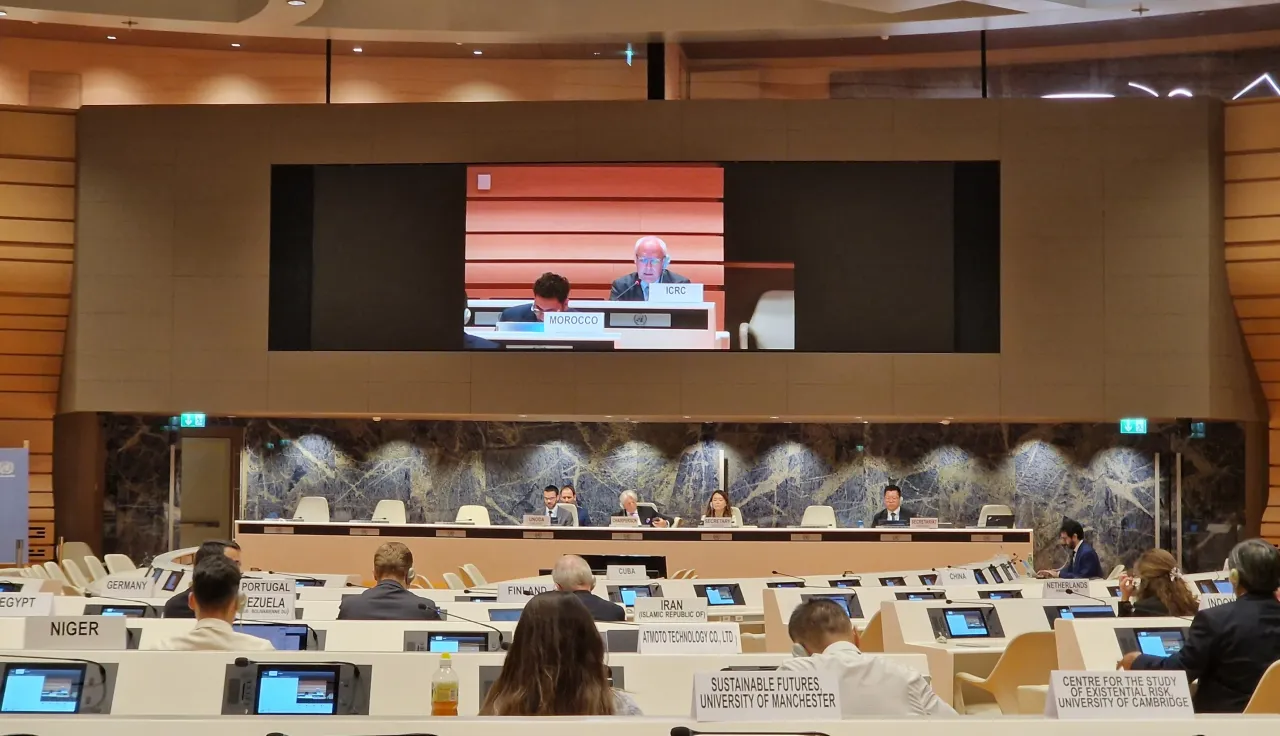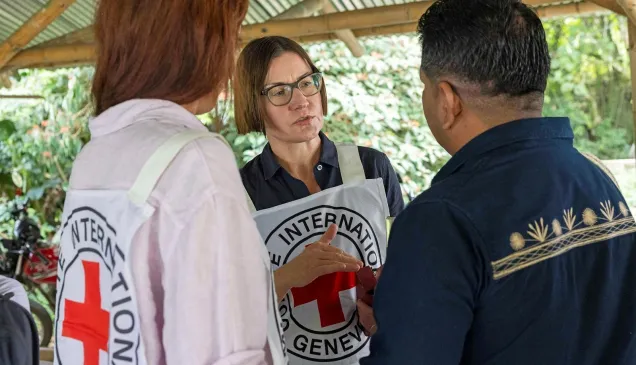Thank you, Mr. Chair.
As it’s the first time I’m taking the floor, let me congratulate you on your election as Chair of the Open-ended Working Group. The International Committee of the Red Cross (ICRC) looks forward to supporting you, Mr. Chair, and all States over the coming years in fulfilling the mandate of the group.
As a humanitarian organization, the ICRC is primarily concerned about the potential human cost of military operations in outer space.
Essential services such as electricity, water, sanitation, health care, food production, financial systems and transport increasingly rely on space-based technologies. Satellites that provide navigation, communications and remote sensing have become indispensable to the functioning of civilian life on Earth.
Humanitarian organizations, including the ICRC and the wider International Red Cross and Red Crescent Movement, also depend on satellite services to reach people in need during armed conflicts and disasters. Without these systems, providing life-saving assistance and helping communities recover becomes very difficult, if not impossible.
At the same time, space systems have become central to modern military operations. We are witnessing the increasing militarization of outer space, with States adopting dedicated space-defence strategies, establishing specialized military commands and developing, testing and deploying counter-space capabilities.
This trend raises serious humanitarian concerns.
As military reliance on space systems grows, so too does the risk that these systems may be targeted or disrupted. The fact that several satellites serve both civilian and military functions further complicates matters, and it is States’ responsibility to carefully consider the human and societal consequences of military operations involving space assets.
Mr. Chair,
Military operations in, or affecting, outer space do not take place in a legal vacuum.
As reaffirmed by the Outer Space Treaty, all activities in outer space by States must be conducted in accordance with international law. Of particular relevance to military operations are the United Nations Charter, as well as treaties on outer space, the law of neutrality and international humanitarian law (IHL).
Let me underscore that nothing in IHL can be interpreted as legitimizing acts of aggression or any use of force that is contrary to the UN Charter. In many ways, IHL and the UN Charter are actually synergetic: any resort to force by States, including in outer space, always remains governed by the prohibition on the threat or use of force contained in the UN Charter. IHL further contributes to preventing an arms race in outer space, as it contains rules that prohibit or limit the development and use of weapons, means, and methods of warfare, including in space.
If, however, a State decides to use space assets as part of an armed conflict, IHL also sets clear prohibitions and restrictions. As mentioned by several delegations this week, and recalled by the International Court of Justice, IHL applies to all forms of warfare and to all kinds of weapons, those of the past, those of the present, and those of the future.
In particular, IHL prohibits direct attacks against civilians and civilian objects, including civilian satellites. Even in cases where a space object may lose the protection that IHL affords to civilian objects due to its use in support of armed forces, any attack must still respect the principles and rules of proportionality and precautions, and comply with all other applicable rules of IHL, including the specific protections afforded to medical, humanitarian and other assets.
Mr. Chair,
This working group has a unique opportunity to ensure that space assets critical to the delivery of essential civilian services on Earth are spared at all times.
To that end, the ICRC has made preliminary recommendations to the international community, focusing on measures to minimize the risk of civilian harm posed by threats to space systems.
We will gladly delve into more detail regarding our recommendations throughout the course of the work of this group, and refine them on the basis of the group’s discussions and the feedback we receive from States.
I trust that all delegations in the room share the goal of ensuring that civilians on Earth remain protected from the harmful effects of all military operations, wherever they occur.
As with the development of any new means or method of warfare, the weaponization of outer space is not inevitable, but a choice. States may decide to set limits in this regard for a range of reasons, including humanitarian ones. Nothing prevents States from agreeing on additional rules to prohibit or limit specific military activities and weapons in outer space – including because of the risks of civilian harm – and they can do it through a legally binding instrument, as they did with the Outer Space Treaty, or through non-legally binding measures or norms.
The ICRC stands ready to support the group’s important work in this regard in the months and years ahead.
Thank you.




